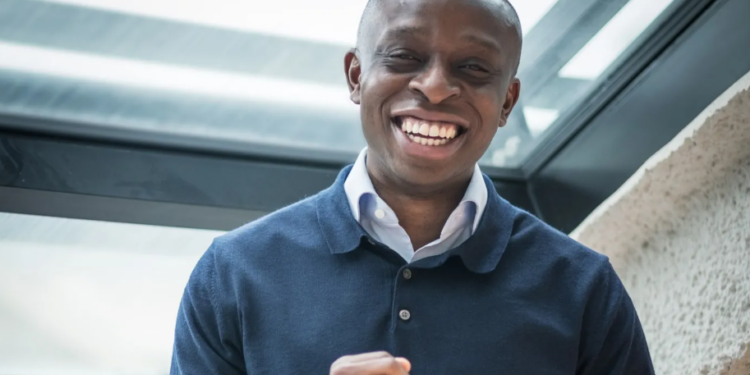The statistics of businesses that succeed are not very encouraging, particularly in Africa.
The percentages of those that succeed vary in different climes.
However, between 60 and 70% fail within the first two years. Entrepreneurs like Tunde Kehinde are going out of their way to switch the numbers by addressing some of the challenges that face businesses.
Tunde Kehinde is the founder of Lidya, a Lagos-based fintech platform that provides finance to small and medium enterprises across Africa. But that is not all about Mr Kehinde. A look at his entrepreneurship journey shows that every startup he has founded or co-founded is addressing one critical SME problem or the other. And there is a reason for that.
- Speaking in an interview, he said; “I grew up in Nigeria, where both my parents were in businesses and I saw firsthand the challenges you have starting and growing your business in an environment where you have issues with power, physical infrastructure, access to finance, education… it just makes it almost insurmountable. And so I want to play my part in solving at least one of the challenges”.
But let’s backtrack a bit. Who is Tunde Kehinde?
Birth and education
Tunde Kehinde was born in Nigeria, to parents who were both entrepreneurs.
As he would later recount, this exposed him firsthand to the challenges that business owners often have to deal with. After his early education, he went to the United States to further his education.
He earned a Bachelor of Business Administration (B.B.A.) in finance with Honors from Howard University in 2004, and a Master of Business Administration (M.B.A.), in General Management from the Harvard Business School in 2011.
A brief career and then Entrepreneurship
After his MBA, Tunde worked with Diageo as a Business Development Manager, before moving to co-found Jumia Nigeria in May 2012. For almost two years, He also served as Managing Director at Jumia Nigeria, Africa’s first unicorn (publicly listed on the NYSE).
Late in 2013, Tunde took it a notch further when he co-founded a logistics solution – ACE – to serve businesses and consumers across Africa. With Africa Courier Express (ACE), the vision was to deliver world-class logistics solutions in Africa where it was much needed. It operated a B2B and a B2C model which would allow SMEs to ship their goods worldwide.
What did this portend for SMEs?
With the logistics barrier broken, it meant that SMEs could expand their target markets to other countries without having to shift base and trust ACE to handle the logistics.
- In September 2016, Kehinde co-founded Lidya and has served as the Chief Executive Officer (CEO) since then. Lidya is offering itself as a financial services platform for SMEs.
As the son of entrepreneurs, Tunde Kehinde knows well the struggles they face, especially in developing economies. “You’re dealing with issues around power, physical infrastructure, access to finance, education it just makes it almost insurmountable,” he says. Most commercial banks don’t see smaller firms as their target customers, yet Kehinde believes that “the real backbone of most economies is the small entrepreneur.”
Lidya also offers very simple and accessible loan services such that small business owners can fill a simple online form on its website, open an account and apply for a loan. Using its own system that analyzes over 100 data points per applicant, Lidya can offer a decision on the loan within 72 hours.
- “We use mobile-first technology, fantastic customer experience and proprietary credit scoring algorithms to help businesses and individuals open an account online in 15 minutes, manage funds, and access credit needed to grow their businesses and plan their futures,” Kehinde said of it.
By providing a secure and flexible credit infrastructure, Lidya has enabled lenders to acquire customers, originate loans and collect repayments with confidence.
As of September 2021, exactly 5 years after commencing operations, Lidya had helped disburse over 30,000 loans to businesses across several countries and continents and was of immense help to SMEs at the peak of the COVID-19 Pandemic.
Its website says Lidya has “digitized and analyzed over US $50 Billion worth of credit application data from 100k customers, issued 32,500 loans and have powered close to $150m in loan disbursements”.
Lidya has also received investment from Omidyar Network, Accion, Newid Capital, Bamboo Capital, Goodwell Investments and Alitheia Capital.
More ways to help SMEs
He is a Young Global Leader with the World Economic Forum since March 2020. Tunde Kehinde is also a fellow of an investment fund that goes by a very funny name – The Unreasonable Group.
It sounds almost weird to say that he is an ‘Unreasonable Fellow’ but that is exactly how his LinkedIn Profile puts it, and he has been a fellow of this group since November 2018.
The vision of the Unreasonable Group says that they believe in the power of businesses to drive lasting, scalable change, and so focus on building a global network dedicated to supporting entrepreneurs positioned to bend history in the right direction.
- “Unreasonable’s mission is to drive resources into and break down barriers for select companies leveraging profit to solve the seemingly intractable social and environmental challenges of our time.”
When you consider Kehinde’s history with solving problems for SMEs, it sounds a bit reasonable, that he is a fellow of ‘the Unreasonable Group’.
Kehinde speaks passionately about what needs to be done to help entrepreneurs grow their businesses and create wealth. This is part of the reason he has been called ‘The Jeff Bezos of Africa’ by the BBC and C2 Montreal.


















This is a very good initiative for growing our economy via making access to finance more easier